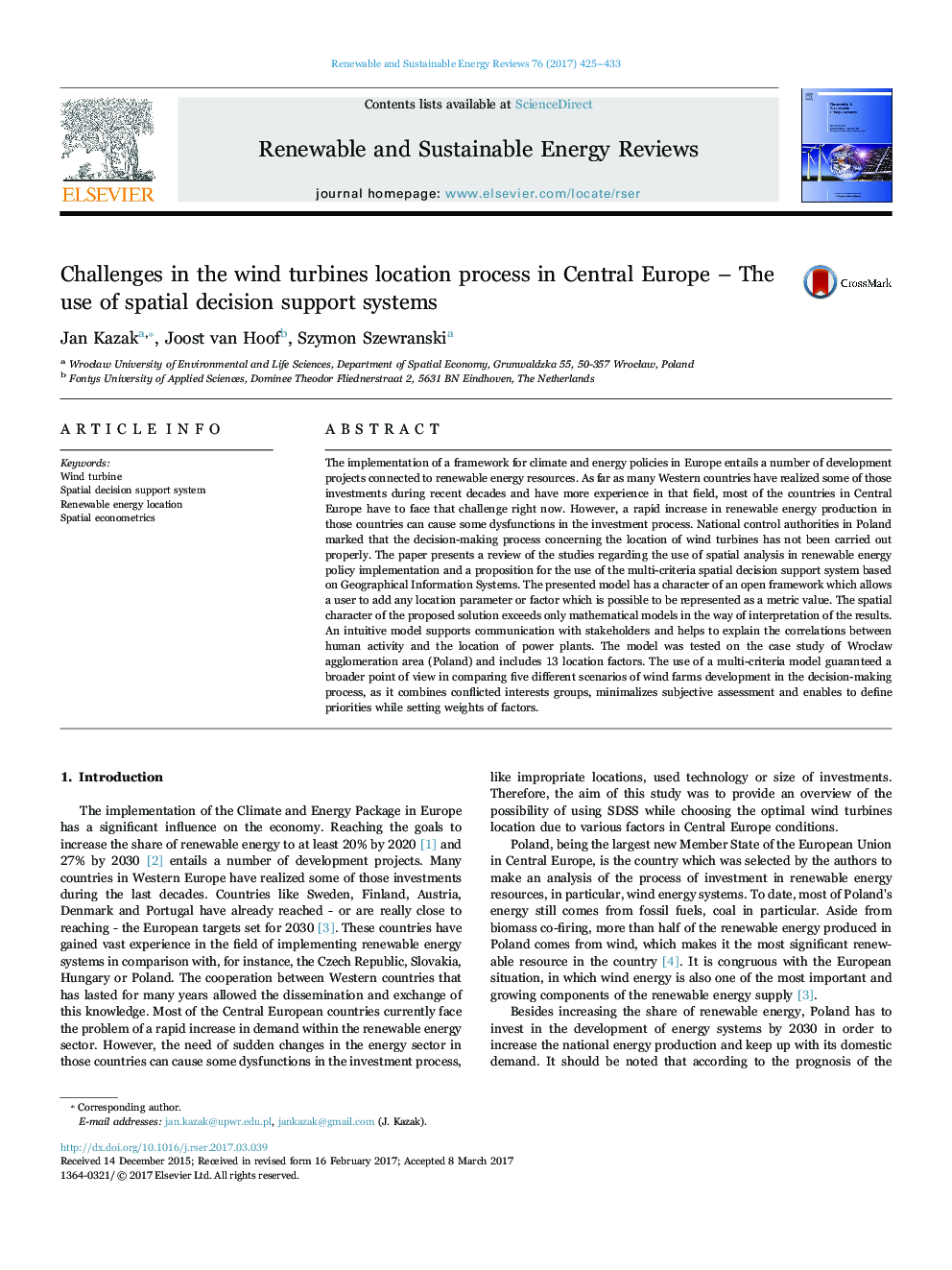| Article ID | Journal | Published Year | Pages | File Type |
|---|---|---|---|---|
| 5482168 | Renewable and Sustainable Energy Reviews | 2017 | 9 Pages |
Abstract
The implementation of a framework for climate and energy policies in Europe entails a number of development projects connected to renewable energy resources. As far as many Western countries have realized some of those investments during recent decades and have more experience in that field, most of the countries in Central Europe have to face that challenge right now. However, a rapid increase in renewable energy production in those countries can cause some dysfunctions in the investment process. National control authorities in Poland marked that the decision-making process concerning the location of wind turbines has not been carried out properly. The paper presents a review of the studies regarding the use of spatial analysis in renewable energy policy implementation and a proposition for the use of the multi-criteria spatial decision support system based on Geographical Information Systems. The presented model has a character of an open framework which allows a user to add any location parameter or factor which is possible to be represented as a metric value. The spatial character of the proposed solution exceeds only mathematical models in the way of interpretation of the results. An intuitive model supports communication with stakeholders and helps to explain the correlations between human activity and the location of power plants. The model was tested on the case study of WrocÅaw agglomeration area (Poland) and includes 13 location factors. The use of a multi-criteria model guaranteed a broader point of view in comparing five different scenarios of wind farms development in the decision-making process, as it combines conflicted interests groups, minimalizes subjective assessment and enables to define priorities while setting weights of factors.
Related Topics
Physical Sciences and Engineering
Energy
Renewable Energy, Sustainability and the Environment
Authors
Jan Kazak, Joost van Hoof, Szymon Szewranski,
